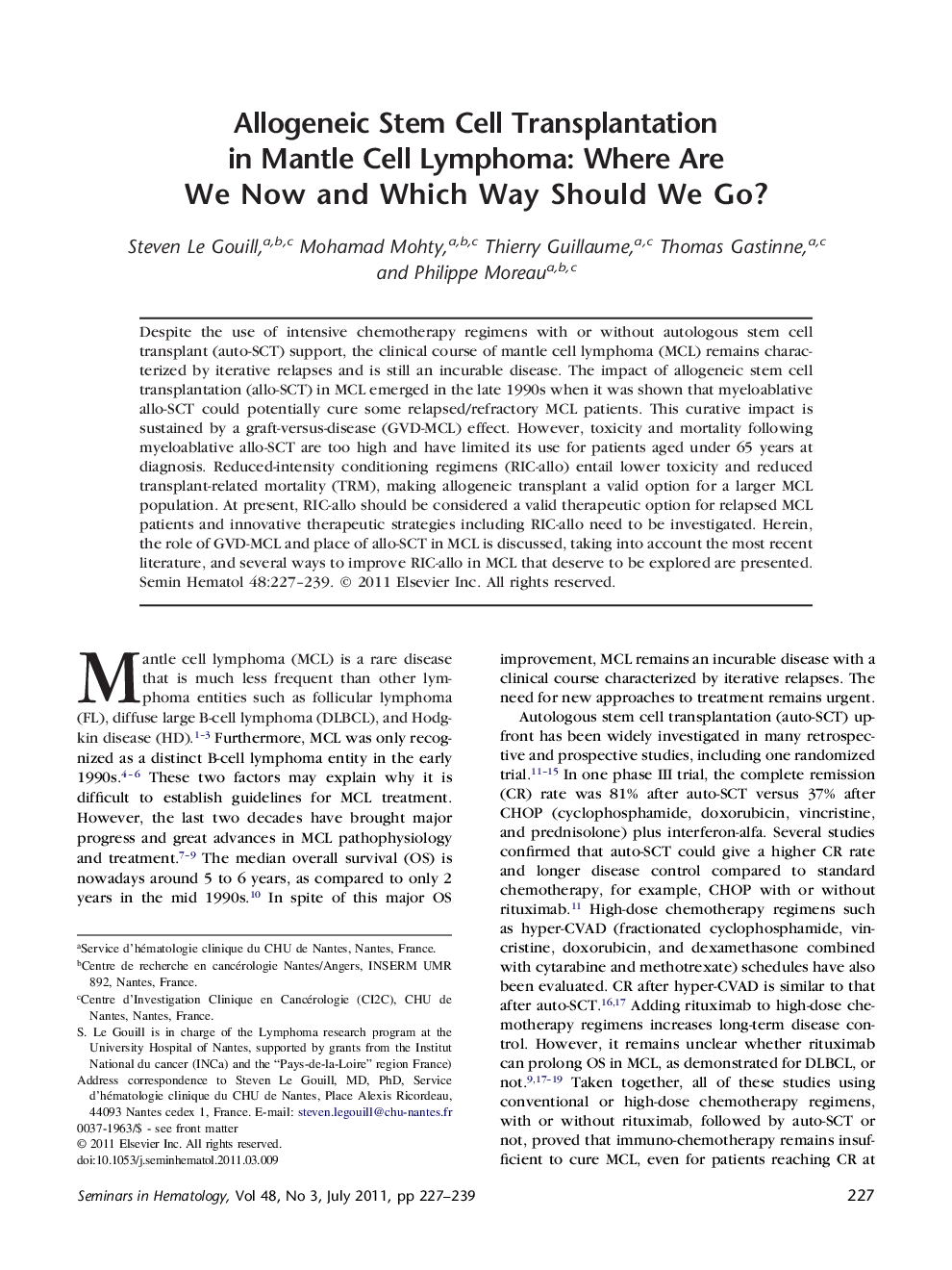| Article ID | Journal | Published Year | Pages | File Type |
|---|---|---|---|---|
| 3333697 | Seminars in Hematology | 2011 | 13 Pages |
Abstract
Despite the use of intensive chemotherapy regimens with or without autologous stem cell transplant (auto-SCT) support, the clinical course of mantle cell lymphoma (MCL) remains characterized by iterative relapses and is still an incurable disease. The impact of allogeneic stem cell transplantation (allo-SCT) in MCL emerged in the late 1990s when it was shown that myeloablative allo-SCT could potentially cure some relapsed/refractory MCL patients. This curative impact is sustained by a graft-versus-disease (GVD-MCL) effect. However, toxicity and mortality following myeloablative allo-SCT are too high and have limited its use for patients aged under 65 years at diagnosis. Reduced-intensity conditioning regimens (RIC-allo) entail lower toxicity and reduced transplant-related mortality (TRM), making allogeneic transplant a valid option for a larger MCL population. At present, RIC-allo should be considered a valid therapeutic option for relapsed MCL patients and innovative therapeutic strategies including RIC-allo need to be investigated. Herein, the role of GVD-MCL and place of allo-SCT in MCL is discussed, taking into account the most recent literature, and several ways to improve RIC-allo in MCL that deserve to be explored are presented.
Related Topics
Health Sciences
Medicine and Dentistry
Hematology
Authors
Steven Le Gouill, Mohamad Mohty, Thierry Guillaume, Thomas Gastinne, Philippe Moreau,
